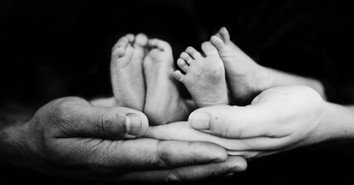Who Sinned?


“Who sinned, this man or his parents, that he was born blind?" (John 9:2)
It’s a natural question, isn’t it?
When a disaster happens, we want to know why. Why Haiti and not Jamaica? Why Chile and not Brazil? Or why did this man get cancer and his brother didn’t? Or why did they both get cancer and one survived while the other didn’t? In this case the question is very focused. When the disciples saw a man born blind, they assumed that someone must have sinned.
So was it his parents?
Or was it the man himself?
The disciples are half-right and mostly wrong in their thinking. They are half-right that someone sinned, but that “someone” was Adam, not the man or his parents. Not that they never sinned at all, but Jesus means that the man’s blindness is not a judgment on any particular sin they committed. In the larger biblical perspective, it all goes back to Adam whose sin brought untold misery to the world and caused the whole creation to groan under a burden of judgment that started in Eden and continues to this day.
Where there is no sin, there is no blindness.
Jesus explained that this man was born blind in order that “the work of God might be displayed in his life” (John 9:3). This means that the man was born blind so that at the right moment Jesus could display his divine power by healing him. We can only see this truth in retrospect. Presumably the blind man didn’t have any premonition that he was about to receive his sight. When he woke up that morning, he awoke to the same darkness he had known all his life. Little did he know that his life was about to change forever.
This question leads us to a warning and to a reminder and then to a great encouragement. The warning is, don’t presume to know what only God can know. Speculating about why someone gets cancer or why someone dies or why an earthquake hits here and not there puts us on dangerous ground. Those things are part of the “secret providence” of God.
The reminder is, because we live in a sin-cursed world, we will never be free of suffering and death until sin itself has been decisively removed by God. That day will come when Jesus returns, but until then we can expect to deal with suffering in one way or another as long as we live.
The encouragement is, you never know when or how the Lord himself may break into your life with transforming power. I have several friends who at this moment need such a “breaking in” from the Lord. I feel no hesitation in praying for that to happen. Sovereign grace means God can do it any time he chooses, and because it is grace we’re talking about, we don’t have to deserve it, and in fact we won’t deserve it, and that’s what grace is all about.
God of light, you see me even when I don’t see you. Help me to trust you even when the way forward seems filled with darkness. Thank you for using my trials as a means of showing forth your grace. Be glorified in me and through me today, Amen.
Going Deeper
Read John 9:1-7. What did the disciples wrongly assume when they saw the man born blind? How does Jesus answer their question? How does this miracle relate to the “I am” statement in verse 5? How is Jesus still the light of the world? Why don’t the Pharisees understand that truth?
Originally published February 28, 2013.





